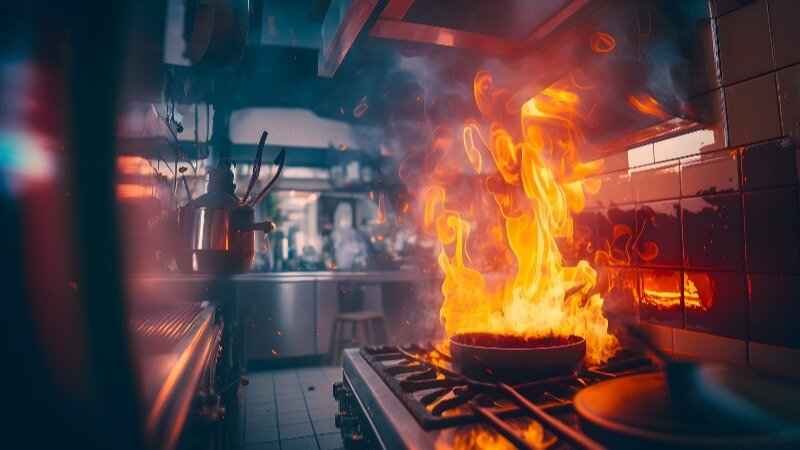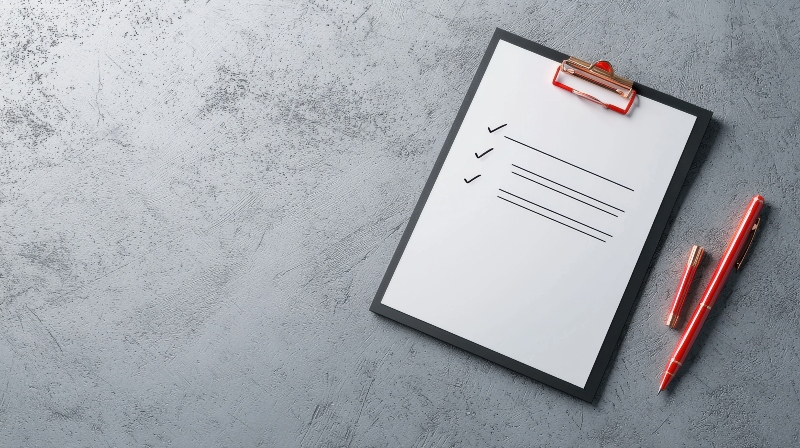
Most of us use our kitchens to cook so often that it’s become a routine we don’t see as being dangerous. Kitchen fires are unfortunately quite common, however. The National Fire Protection Association reported that cooking was the leading cause of reported home fires and injuries in a recent five-year period and that injury rates and property losses were higher in fires that started with fat, grease, butter, or lard. Grease fires can also happen in restaurants, putting employees, customers, equipment, stored food, and the building itself at risk.
This blog will give you important information about how grease fires are caused and how to put them out. Read on to find out common questions and answers about grease fires so you can keep your family or business safe.
What causes a grease fire?
Kitchen grease is produced when you cook fatty foods like bacon or when you use a product like vegetable oil. Grease and oil are highly flammable, and a fire can occur when they get too hot in the pan or if they have accumulated inside your oven or on exhaust system vents.
What are some warning signs before a grease fire occurs?
Greases and oils start to boil when they become overheated. They then start smoking, and if they continue to overheat, they can catch fire in as little as 30 seconds.
How can you put out a grease fire?
Your first reaction when you see a fire is probably to pour water on it. Not only does that not help with grease fires, it can actually help the fire spread by causing the oil to splash.
Turn the heat off, but don’t try to move the pot. If you have a metal lid nearby that you can put on the fire without injuring yourself, this can help smother the fire. (In fact, when you cook, you should keep a metal lid close at hand for this purpose). You can also use a lot of baking soda to help put out a grease fire, but only if it’s a small one, and you’ll need to avoid accidentally using similar-looking items like flour or baking powder, as those will make the fire worse.
Specific types of fire extinguishers can also be used to put out a grease fire. A class B, BC, or ABC fire extinguisher can be used for this purpose. So can a class K fire extinguisher, which is commonly used in commercial kitchens. These extinguishers use dry powder, cooling foam, or carbon dioxide to smother the fire.
Do kitchen fire hood systems help prevent grease fires?
Kitchen fire hood systems can help remove airborne grease, heat, and smoke, so they should always be active while you’re cooking. For commercial or industrial kitchens, a kitchen fire hood suppression system is designed to put out fires without ruining equipment and food. They restrict fire damage to an individual cooking surface since they keep a fire from getting out of control. These systems must comply with state and local fire codes and need to be tailored specifically to your kitchen. Whether you have a home system or a commercial or industrial one, it should be regularly cleaned and maintained to avoid grease buildup.
Equipment such as the correct type of fire extinguisher and hood systems can help if your home kitchen or business suffers a grease fire. Brothers Fire & Security can help design a system that works for you and that meets any applicable fire codes. Contact us today to help keep your home and business safer.
Subscribe to our blog!

Making the Switch: Vendor Transition Guide
Switching fire and security vendors feels risky. Even if your current provider isn't meeting your needs, the thought of transitioning systems and...

What to Do When Your Security Vendor Goes Silent
Your fire alarm shows a trouble signal. Last week's sprinkler inspection never happened, and despite three calls and multiple messages, your vendor...

















